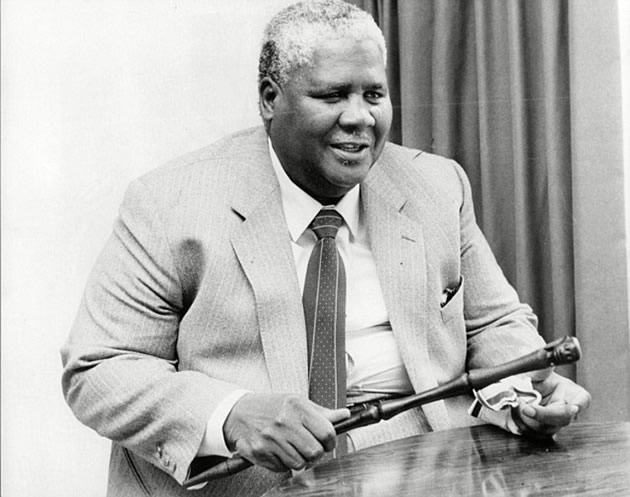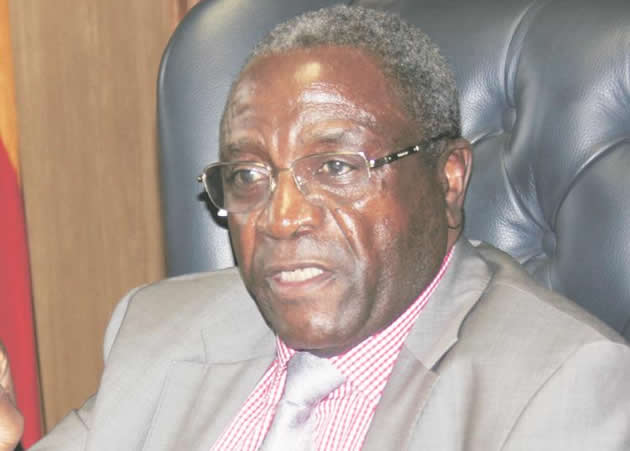No success without sacrifice

Reason Wafawarova On Thursday
While ZANU-PF has the right politics in terms of Zimbabwe’s political international relations, the party certainly does not have the right domestic politics needed for the advancement of the needs of locals, or does not show any significant enthusiasm for it.
Recently Vice President Emmerson Mnangagwa was reported saying; “It is important that we remain proud as a nation and as a people,” adding “we will not do anything that removes that pride because as a people we are independent and sovereign.”
This is the politically correct position for the sound foreign policy that we command as a nation, and we know that we have created for our people a firm negotiation platform where those with interest and intention to do business with us will have to first admit that we are equals as human beings, and that whatever deals we may agree on, they have to be on a win-win basis.
The world is more than aware that under President Mugabe, Zimbabwe is no pushover destination in terms of international relations. We are not known as a compromising nation that can bend backwards in exchange for aid or any other material benefits, and that is precisely why Western foreign powers have been trying to breed a quisling opposition for the country over the past 15 years. Our position needs to be softened and adjusted, in their view.
The worrying reality behind ZANU-PF politics is what lies behind the impressive principles of President Mugabe, and what lies behind the soundness of the concepts of patriotism, independence, and sovereignty.
Let us look at the simple question of why someone steps up to lead others on a ZANU-PF ticket, or why those that do so otherwise make that decision.
There are those that clearly do so for survival, perhaps to secure existing, or to protect prospective privileges, and these are not exactly few. Clearly, such motivation is selfish by definition, corrupt from a moral point of view, unpatriotic in its political sense, and dangerously destructive from a developmental viewpoint.
Strangely, the ruling party has over the years not been able to stop such selfish ambition, or in many cases, the party has just accepted such ambition as normal political practice.
Then there are those who step up to lead us because they want to make money, and again these are not few.
So we have people who fight it out to get to Parliament because they do not have a salary to begin with, or they do not see any other prospect of ever owning a car.
Leading people must be more of a sacrifice than a gain, and certainly it is not about securing employment, let alone about acquiring material gains.
Well, the idea of entering politics for the sole purpose of making money is a disease affecting the country’s political spectrum across the divide, and some would argue that in fact it is more rampant in Zimbabwe’s opposition circles than it is within the ruling ZANU-PF.
We have people who step up to lead us because they want fame and recognition, and once they see their names in the newspapers and on television, they get this vacuous sense of accomplishment. These are the miscreants that grow bid-headed because they carry titles like Honourable, Right Honourable, or some such good for nothing salutation.
We also have leaders who step up to lead us because they want the world to be a better place for everyone, they want to make positive change; they want the best for their country.
We have nationalists like the late Joshua Nkomo, Herbert Chitepo, Samuel Parirenyatwa, Robert Mugabe and many others who left the comfort of the fruits of their academic accomplishments to go and fight for the liberation of the country, to help provide leadership to the thousands of freedom fighters that left family, friends and schools to make sure that they brought change for us all by terminating the distress of colonialism.
There is a cost to leadership, and every successful leader has to pay that cost. As a leader rises in leadership, responsibilities must increase, and rights must decrease.
But today we have leaders whose responsibilities decrease with the rise of their power in the party or Government hierarchy, and their rights increase above those of all of us on the mere basis that they are in leadership. This is the definition of failed leadership, and that is what bedevils us as a nation today.
Leadership is about sacrifice, and sacrifice is not a one-off event. It is an ongoing process that every successful leader will have to put up with, and the higher the level of leadership the greater the sacrifice one has to make.
Vice President Mnangagwa was recently in China, and was reported to have said:
“You cannot say there are areas of our economy which we are happy with, infrastructure we are behind by 15-16 years, agricultural development the same, manufacturing, in fact capacity utilisation in some areas of our industry it is down to 20%, so again we have to retool by acquiring new machinery, technology and machinery so that we are competitive.”
Why is our economy lagging behind this much? What is the responsibility of our leadership in all this? We know there is no success without sacrifice, and the question we want to ask ourselves is what has been the sacrifice from our leadership to ensure that agricultural development, or infrastructural development is a success?
We cannot expect some kind of miraculous agricultural development spearheaded by leaders smitten by the destination disease — leaders whose sole aspiration is to last five years in Parliament, or to make sure that they stay in ZANU-PF’s Central Committee or Politburo for as long as they are alive.
Successful leaders must give up something for them to succeed, and any leader who cannot identify what they have given up in life is essentially a dangerous opportunist that must be kicked out of leadership for the goodness of humanity.
We must understand that activity is not accomplishment, and that is why loud and sloganeering rhetoricians must not be allowed to mistake their noise for accomplishment. Propaganda does not know how to handle economic development, much as it knows how best to vanquish political opponents.
Our leadership must be reminded that there is no advancement or development without sound prioritisation. Good leaders are known for making good of well-set priorities.
Where did we place the resettled black farmer in the past 15 years? Where did we place investment at the peak of our political bickering with our equally harebrained opposition? Where did we place the welfare of the nation?
We are a country that used to prioritise education and health over and above everything else we do, and now we are more preoccupied with how to settle wage bills for our civil service. What has gone wrong over the years, and do we have the courage to confront it?
We cannot confront this disastrous fate with the excuse of illegal economic sanctions from the West, much as they remain a major causal factor for our precarious predicament.
The sanctions were put in place to fight our priorities, and what we needed to do to defeat the sanctions was to protect our priorities, not to complement the intention of the enemy. By side-lining agricultural development and the welfare of our masses, we were basically giving credence to the desired effect of the illegal sanctions, and that is not how one defines good leadership.
It is a known fact that political leaders do not easily practise the discipline of prioritising, and that is why we still import expensive cars for the luxury of our most esteemed leadership, even when we have no garbage removal trucks or ambulances.
The problem with our leadership is this misleading belief that when one is busy that means they are achieving. Our politicians sometimes engage in very tight cross-country schedules to say sweet nothings to our desperate people, and they count that futility for achievement. Being busy does not always equal productivity, and in our case, it normally does not. Border to border gallivanting without tangible benefits for the people is no achievement in itself.
Prioritising requires leaders who think ahead, and we hardly have any leaders in the country who think beyond winning an election.
A successful leader needs not only to know what is important, but also to know what comes first, and what comes next. What were our priorities at the peak of the Marange free for all harvest? Were they right? Did we plan what was to come first, and what was to come next?
What were our priorities when we were pushing the 51% ownership policy for investors? Did we try to figure out how everything related to the overall vision? If we did, how did we end up with the compliance chaos we have today, most of it caused by internal divisions within our leadership system?
The first responsibility of any successful leader is to define reality, and by that I mean the reality of what surrounds them.
John Maxwell has written extensively on leadership, and he writes that a successful leader has to first and foremost know what is required of their leadership.
What is required of political leadership is not that we may have rulers, and our leaders sometimes pride themselves in this fantastic imagination that we die to be ruled. It is frankly a disgusting philosophy.
What is required of political leadership is good governance, and the key performance indicator for that is the prosperity of a nation, the happiness of citizens, and the collective hope for any given nation.
Maxwell writes about knowing what is the return, and it is important for our leadership to calculate or make analysis of the benefit of each of the policies they want to push forward. There is no second guessing on the benefit of the anticipated return for either the land reform policy or the indigenisation policy, but anticipating a huge benefit is way different from achieving it.
A successful leader is focussed on getting the reward for his decisions and actions, and such reward is defined by the collective benefit for the people led.
Hopefully this piece will inspire someone into responsible leadership.
Zimbabwe we are one and together we will overcome. It is homeland or death!!
- REASON WAFAWAROVA is a political writer based in SYDNEY, Australia.









Comments